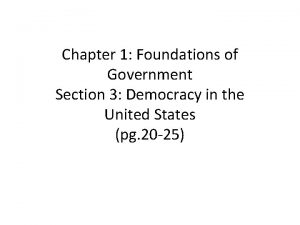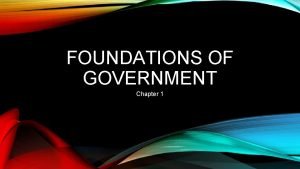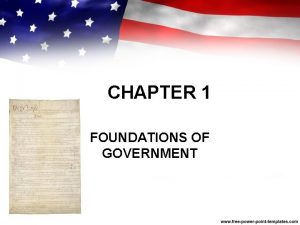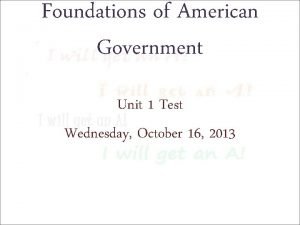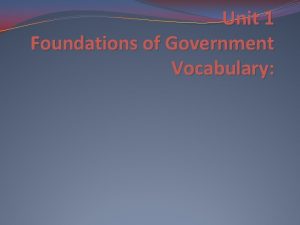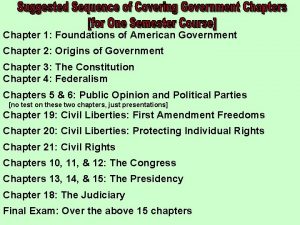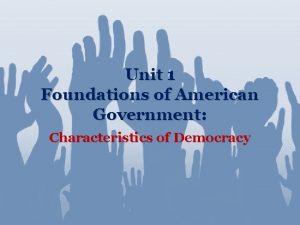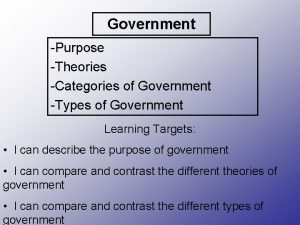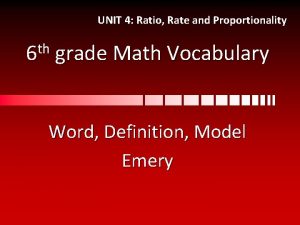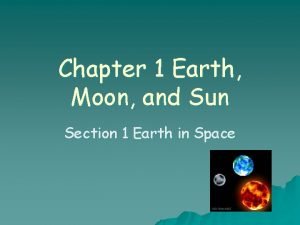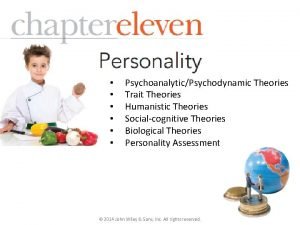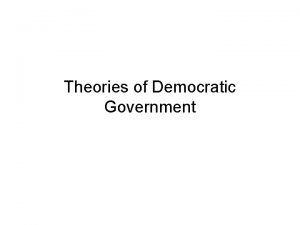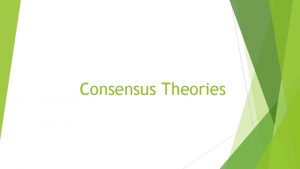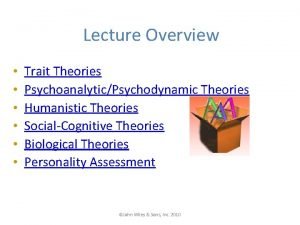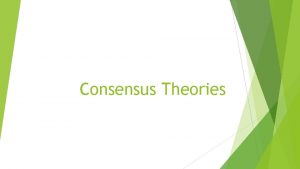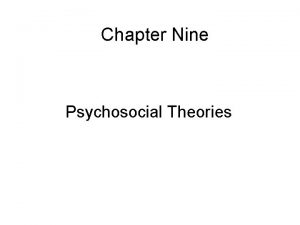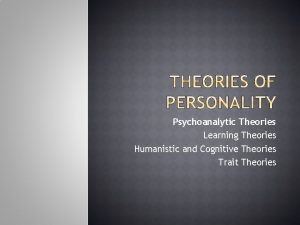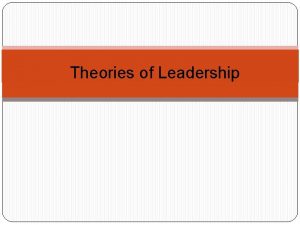Foundations of Government Part 3 Theories of Government













- Slides: 13

Foundations of Government Part 3: Theories of Government Part 4: The State of Nature

Review • What are the essential features of a state? • What are the purposes of government?

Theories of Government • There are four theories on how government emerges. – Evolutionary – Divine Right – Force – Social Contract

Evolutionary Theory • A government evolves from the family unit. – Using the primitive family unit, in which the head of the family would equal the head of the government. – Example: The daimyo (大名)

Divine Right • The head authority is given their power by a divine power. – The rulers in the ancient cultures of the Egyptians and the Aztecs, for example, were descended from gods, while in Europe and China, the rulers were chosen by gods.

Force Theory • States and their governments are born out of necessity. – Decisions and protection were needed causing, or “forcing, ” leadership and government to simply emerge.

Social Contract Theory • Government comes from the people. – Essentially, the people reach a consensus that government is needed. A contract exists between the government and the people because the people put the government in power. – There are two theories about the social contract.

Social Contract Theory • Both Locke and Hobbes begin with their ideas on the state of nature. – The state of nature is the state of human existence before government existed. • This is also where the differences in their theories start.

John Locke’s Two Treatises • The State of Nature – People are inherently good. • But not above temptation. – They are also given certain natural rights. • Life, liberty, property. – Because people want protection of their rights, they create government.

• Overall message: Because people value their rights, they willingly accept the presence and authority of government. Because the government is out to protect these rights, the people have the authority to get rid of a government that fails to protect them. • Right to Revolution: The right of the people to abolish the government when it fails to do protect them.

Thomas Hobbes’ Leviathan • The State of Nature – People are inherently bad. – This makes life cruel and short. – In order to gain protection, the people give up their rights in return for a government.

• Once a government is established, it will stay in place as the people no longer have rights. • If the government ever does wrong, it is technically the fault of the people, who established it. • Trying to get rid of the government once it has been established is treasonous.

Review • What are the four theories on how government emerges? • Explain them. • What are the natural rights? • Who came up with this idea? • What was the other right he said existed? • Who opposed this? • Why?
 Foundations of government section 3
Foundations of government section 3 Chapter 1: foundations of government pdf
Chapter 1: foundations of government pdf Foundations of government chapter 1
Foundations of government chapter 1 Foundations of american government unit test
Foundations of american government unit test Foundations of government vocabulary
Foundations of government vocabulary Foundations of government (chapter 1 test form a)
Foundations of government (chapter 1 test form a) Unit 1 foundations of american government
Unit 1 foundations of american government Divine right
Divine right What is a technical description
What is a technical description Part part whole addition
Part part whole addition Describe the parts of a front bar
Describe the parts of a front bar Part to part ratio definition
Part to part ratio definition The part of a shadow surrounding the darkest part
The part of a shadow surrounding the darkest part Brainpop ratios
Brainpop ratios
